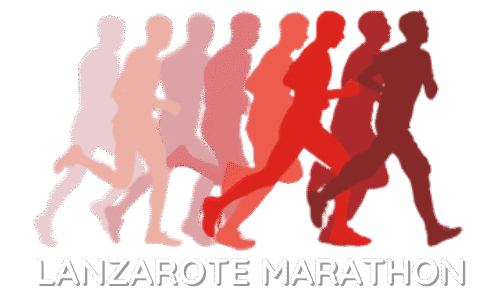
Ways to Prepare Yourself for the Sports Season
The start of the school year is almost here, which means that sports are soon to follow. Whether you’ve coached a team or cheered from the sidelines, you know the stress of preparing for a busy season. In addition, most schools have strict policies about uniforms, gear, and playing time, which means endless parent-teacher meetings and late practices on the field.
That aside, it’s time to start preparing for the sports season. Exercise improves your mood, memory, and concentration level, and it helps you maintain a healthy weight. As any athlete will tell you, playing sports can be a great way to improve overall health and fitness and reduce stress.
9 Tips to Prepare for Your Sport Season
Visualize Yourself Winning The Game
With winter coming to an end and spring quickly approaching, you need to get into your sports season mode for practice, games, and tournaments, if you’re an athlete. But before all of that, it’s important to start visualizing how you’re going to achieve everything you dream of for the upcoming season of sports. Whether it’s your first sports season or you’re a seasoned veteran, visualizing yourself winning the game can be a powerful tool.
Practice
It’s time to gear up and get moving! With the spring season right around the corner, now is the perfect time to brush up on your sports skills. Sport is a worthwhile activity to do with your children if you have any at home. To improve their skills and develop their competence, you can also enroll them in sports training classes (e.g see this site, for lessons about tennis).
Stay Focused
Staying focused while playing a game is a crucial aspect of getting the most out of your experience. When your attention is not on your surroundings, and your head isn’t in the game, there is a chance that you might injure yourself. For instance, if you aren’t aware of your body and the opponents during a game of rugby, you might sustain severe injuries. This is why wearing protective gear like a helmet is essential; otherwise, you might sustain a serious mouth injury, wherein, you may have to avail emergency dentistry omaha (or wherever the incident has happened) to ensure that you receive quick treatment for your injury. Similarly, if you’re not wearing a helmet on the field, you may injure your eyes. Keep in mind that issues with the eyes can be irreversible. Therefore, it is in your best interest to avoid such issues by being cautious of your surroundings and wearing the necessary protective gear.
That being said, keep in mind that to maintain focus, you have to make sure you’re taking care of yourself physically, mentally, and emotionally. Though they are all equally important, to perform well, you need to take special care of your physical health. You want to ensure that you have enough energy to sustain your activity or sport throughout the season.
Cut Back On Intensive Training
Sports season is just around the corner, and if you’re training for a sporting event, you should be focused on getting in as much practice as possible. But practicing too much can be detrimental to your mental and physical health, so it’s important to know when and how to cut down on training while still maximizing your performance.
Opt for Physiotherapy
Opting for physiotherapy from Pursue Physical Therapy & Performance Training and similar companies can be a strategic move for athletes like yourself gearing up for the sports season. Physiotherapy can play a pivotal role in enhancing your physical readiness by addressing potential injuries, improving flexibility, and optimizing overall performance.
Through tailored exercises and targeted interventions, physiotherapy aims to strengthen specific muscle groups, prevent injuries, and enhance endurance. This proactive approach ensures that you enter the sports season with a robust and resilient physique.
Physiotherapists also offer personalized advice on injury prevention techniques and recovery strategies, fostering a comprehensive and athlete-centric approach. By incorporating physiotherapy into your pre-season routine, you not only mitigate injury risks but also elevate your athletic performance, laying a solid foundation for a successful and injury-free sports season ahead.
Give your body time to recover from practice sessions
Athletes are well aware of the toll that intense training can exact on their bodies. The rigors of physical exertion often result in muscle fatigue, micro-injuries, and overall wear and tear. Recognizing the need to optimize performance while reducing the risk of injury, athletes prioritize post-workout recovery. This vital phase grants the body the essential time it needs to rejuvenate, regenerate, and emerge even stronger.
Among the diverse range of recovery methods, ice baths emerge as a time-tested and reliable approach. Following grueling training sessions, athletes submerge themselves in cold water, typically within the range of 50 to 59 degrees Fahrenheit (10 to 15 degrees Celsius), for a specified duration. This cold immersion prompts blood vessel constriction, curtails inflammation, and numbs muscles, effectively alleviating soreness and fostering the recovery process. Ice baths hold a significant place in many athletes’ routines, particularly during intense training phases and competitive seasons. If this subject matter has piqued your interest, then you can learn more about it here.
Furthermore, professional athletes often incorporate regular massages into their routines. These hands-on sessions serve to relax muscles, alleviate tension, and promote enhanced blood flow, all of which contribute to the healing and recovery process.
In addition to massages, athletes frequently turn to foam rollers for self-myofascial release-a technique that involves applying pressure to specific points on the body to relieve muscle knots and tension. This practice not only enhances flexibility but also reduces muscle soreness, allowing athletes to maintain peak physical condition as they pursue excellence in their respective sports.
Sleep early
The world of sports often witnesses a paradox where sleep, a fundamental pillar of overall well-being, becomes the unwitting casualty of an athlete’s relentless pursuit of excellence. It’s not uncommon for athletes to sacrifice sleep in the name of rigorous training, late-night practice sessions, or grueling competitions. This practice, though widespread, carries significant repercussions that can profoundly affect performance.
Sleep deprivation can manifest in various forms, from reduced attention and slower reaction times to impaired decision-making and compromised cognitive function. Athletes who consistently cut corners on sleep may find themselves on the path to increased injury risk, decreased immune function, and longer recovery times after injuries.
Moreover, insufficient sleep can hinder the body’s natural ability to repair and build muscle, a critical process for athletes seeking to maximize their physical potential. It also disrupts hormonal balance, potentially leading to decreased motivation, mood swings, and heightened stress levels.
The admonition to “get enough sleep” isn’t mere advice; it’s a foundational principle of athletic success. Athletes should prioritize a consistent sleep schedule and aim for 7-9 hours of quality sleep per night. When necessary, sleep should take precedence over late-night activities or additional training. In the end, it’s the well-rested athlete who can truly perform at their peak, making sleep an invaluable ally on the path to sporting excellence.
Eat Dinner & Breakfast That’s High In Carb
For those who embrace sports as a means to fuel an active and vibrant lifestyle, the relationship between nutrition and performance becomes paramount. Whether your passion lies in the rhythmic cadence of running, the freedom of biking, the fluidity of swimming, or the resilience-building realm of strength training, the right fuel can spell the difference between excellence and injury.
In this pursuit of sporting prowess, the emphasis on carbohydrate-rich dinners and breakfasts shines as a guiding principle. Carbohydrates serve as the body’s primary energy source, acting as the lifeblood of athletic endurance. By consuming meals abundant in carbs, you ensure that your body’s glycogen stores are replenished, providing you with sustained energy to power through demanding training sessions.
This strategic approach to nutrition isn’t just about performance; it’s also a key player in injury prevention. Well-fueled muscles are less prone to fatigue and injury, enabling athletes to push their boundaries and enjoy the full benefits of their chosen sport. Whether you’re chasing personal records or savoring the sheer joy of movement, the right nutrition can elevate your athletic journey to new heights..
Prepare All You Need Ahead Of Time
Athletes are usually more dedicated when it comes to preparing for the sports season. They wake up earlier, have more discipline, and are more focused. But athletes usually don’t prepare properly. It is necessary to prepare all the things that would be needed on the day of the game, well in advance.
Meditate
Athletes should prepare for the season by taking care of their bodies, both physically and mentally. While a healthy diet will take care of their physical health, for mental peace they can practice meditation. It can help them ignore all the unnecessary noise in the stadium and focus on their play.
The sports season is underway, and for many of you, this means countless hours of watching, playing, or, at least, thinking about our favorite sport. Either way, it can be exciting. But, when athletes take care of the above advice, they would certainly rock the season.
